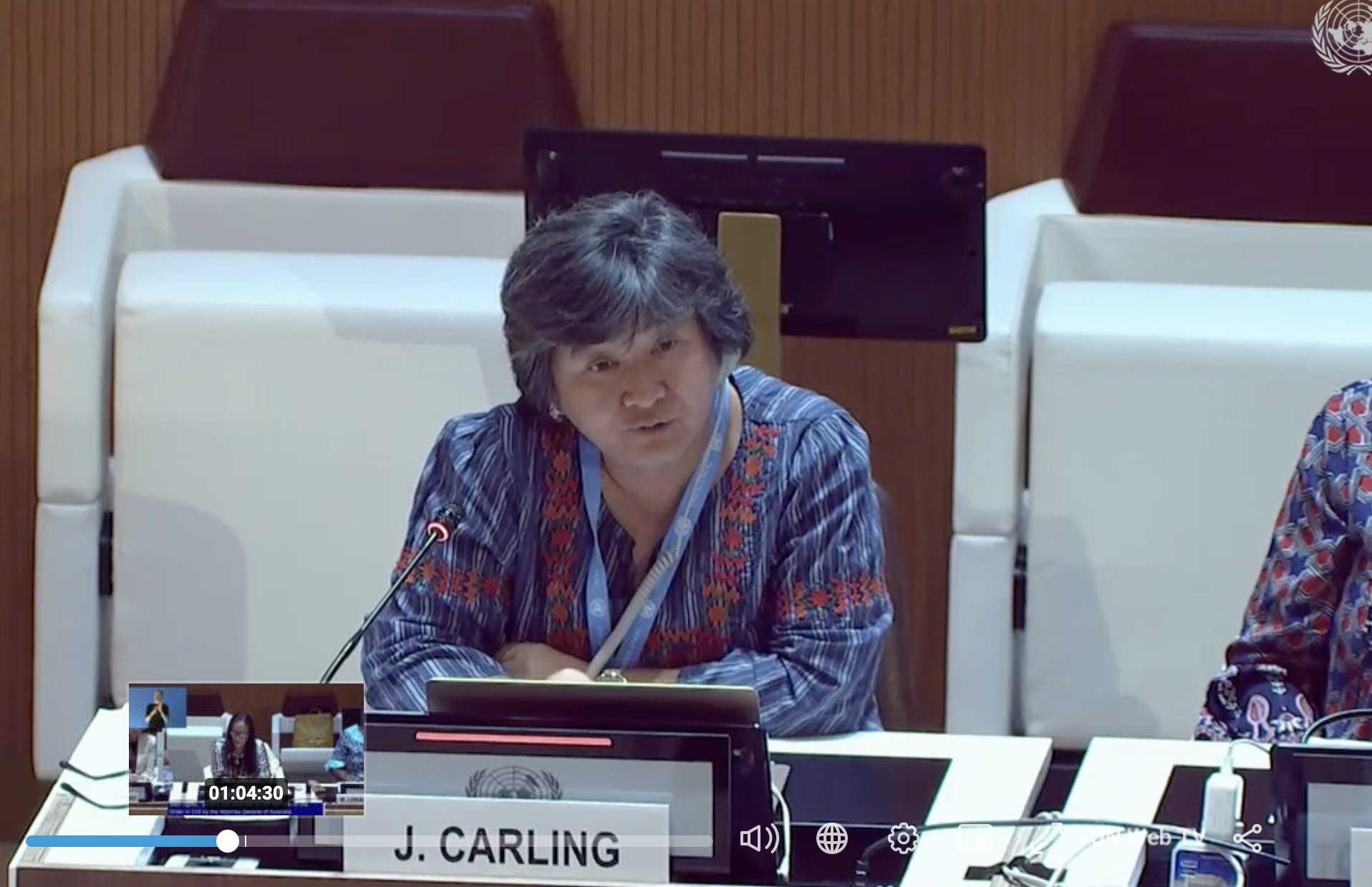
Item 8: Panel discussion on the impact of development projects on indigenous women
My presentation has two key elements. First is on Indigenous Women environmental and Human Rights Defenders fighting destructive development projects; and second is on the indispensable roles of indigenous women as the practitioners of sustainable development against the current development paradigm.
One of the frontline indigenous leaders affected by a geothermal project in my region, who was arrested and detained for false charges, said: Why is it that defending our lands from destructive projects is regarded as anti-development and we are treated like enemies? Why is it that when we demand for culturally sensitive education for our children, we are regarded as communists? And why is it those indigenous women leaders are considered weak, can men just maltreat them? These questions characterize the condition of indigenous women in relation to development. It also illustrates the risks that we indigenous women face, when standing up and leading the protection of their customary lands from so-called development projects that completely violate our rights to our lands, territories and resources and our right to self-determination and cause irreversible damage to our environment.
Yesterday, my organization, the Indigenous Peoples Rights International-IPRI issued a statement on the continuing lack of justice in the killing of Bertha Caceres in Honduras in 2016 for leading the Lenca People’s struggle against the Agua Zarca Hydro-Dam project to be built in their territory. Despite the sentencing of a company executive for his responsibility in the murder of Berta Cáceres, recently disclosed documents show alleged omissions and involvement of financial and corporate entities in her murder. The power of the corporate world to impose their development agenda and deny justice to victims of their outright violation of our rights and dignity as indigenous peoples – and as indigenous women - is a challenge that the UN system needs to address. The criminalization of indigenous peoples including women in defending our rights against destructive development projects should end and our rights and wellbeing as actors of development should be respected and protected.
The impacts of development profoundly affect both the individual and collective rights of indigenous women. When indigenous women are evicted from their lands and territories because of development projects such as agri-business, mining, energy, infrastructures and commercial tourism, this is not only a violation of our rights to our lands, territories and resources. It also weakens the role of indigenous women in resource conservation and management including sustainable food systems. Moreover, it erodes our role as transmitters of indigenous knowledge, caregivers to children and the elderly. It is a direct assault on our dignity and wellbeing as it undermines our intrinsic and reciprocal relations with our lands, territories and resources. Likewise, eviction of indigenous women from our lands destroys our social cohesion and makes us more vulnerable to different forms of violence as we have to fend for ourselves and our children outside our social safety nets. Likewise, while our lands and resources are being used for development, we do not have access to basic social services such as appropriate health, education at all levels, livelihood support including to indigenous women. This is not only unjust but also an act of racism and systemic discrimination.
If we are to advance on indigenous women and development, society needs to change its attitude and treatment of indigenous women, on the one hand, and its approach to development on the other within the framework of human rights, social justice and equality. First, indigenous women’s identity and dignity are linked to the respect and protection of our individual rights as women and to our collective rights as indigenous peoples. Upholding indigenous women’s dignity implies putting them front and center in pursuing genuine sustainable development from the perspective of indigenous peoples.
This will provide the enabling environment for indigenous peoples not only to play their critical role in sustainable resource management and conservation but to lead the path for sustainable living that is respectful of our natural environment based on a reciprocal relationship. The leadership of indigenous women in sustainable development will also ensure the practice of essential values and principles of indigenous peoples such as mutual cooperation, upholding the common good instead of narrow interest, caring and sharing and doing no harm to the environment and to each other.
These are in contrast to the present approach to development that is extractive and driven by narrow interest for economic dominance causing more inequality. Even the commercialization and exploitation of women is acceptable behavior in this context. I sincerely believe that indigenous women are the real embodiment of sustainable development and deserve all the respect, equal treatment and recognition of our rights and crucial roles and the leadership they provide for all of humanity in what sustainable development should be especially now that we are facing global economic and climate crises.
Thank you.

%2020.49.20.png)
